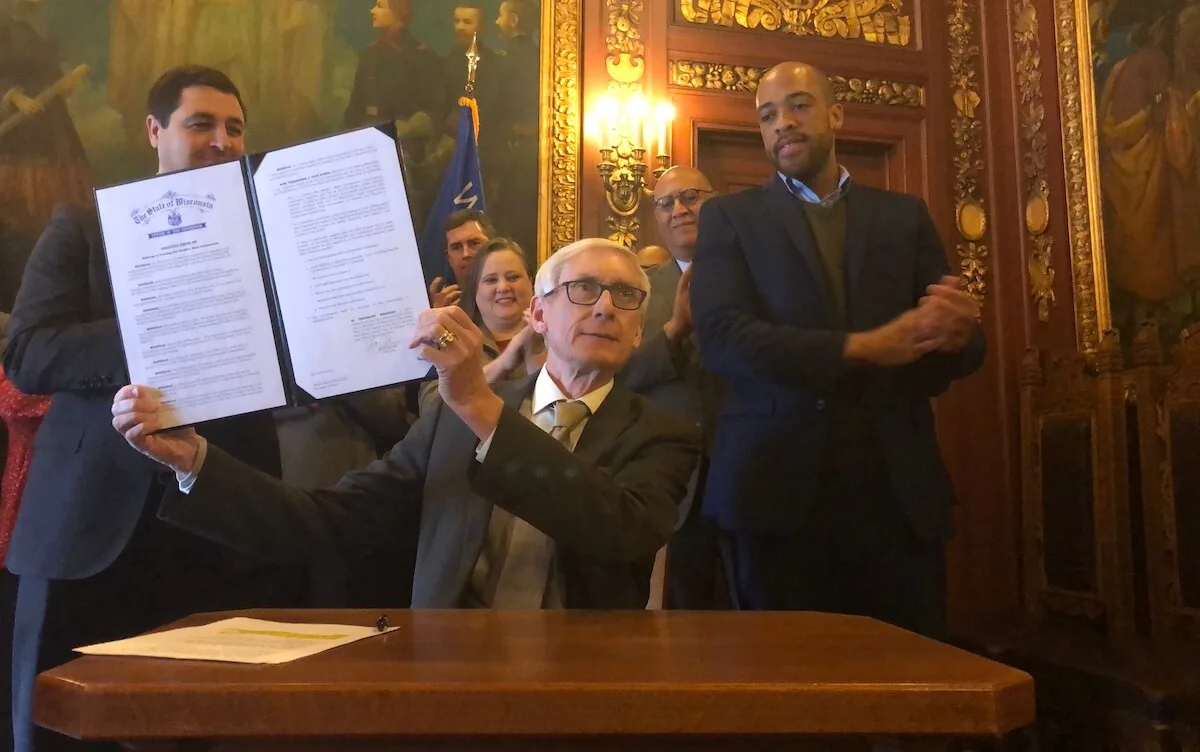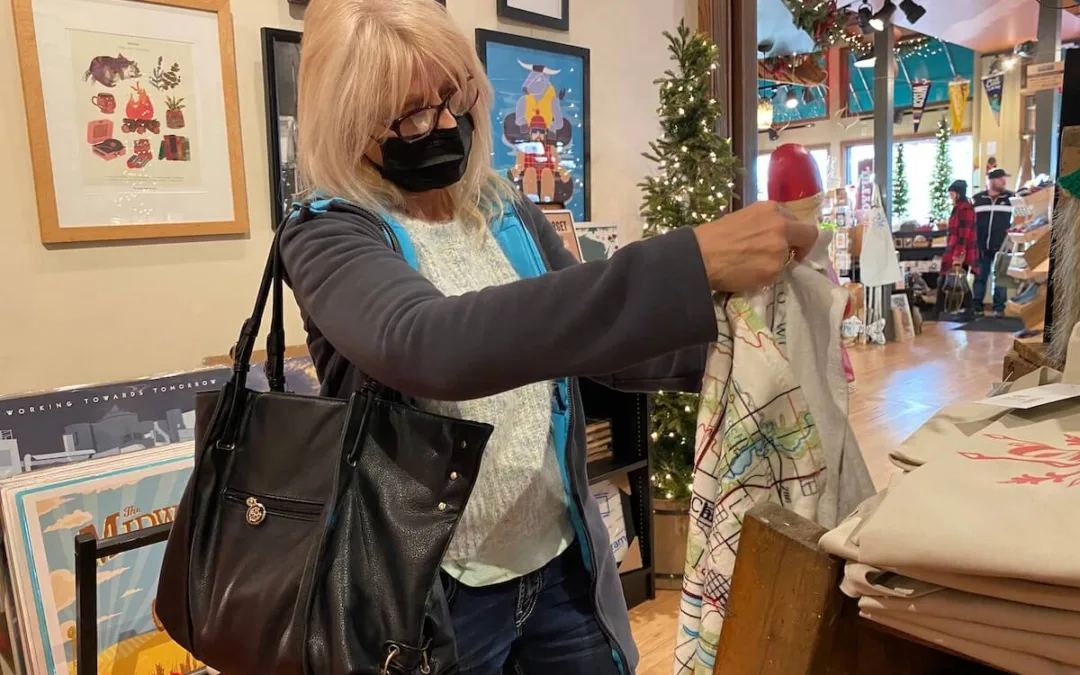
#image_title
#image_title
Former US Attorney General Eric Holder says Wisconsin has some of the country’s most rigged maps.
As a former Green Bay school board member, Anneliese Waggoner knows plenty about representative government.
Waggoner, who lives in the Green Bay suburb of Allouez, recalls her many meetings, not only with constituents but with state legislators who discussed a range of school-related topics. She misses those interactions, she said, misses responding to the questions and concerns of neighbors and state lawmakers.
Such discussions between politicians and the people they represent occur less frequently these days, at least when it comes to members of the state Legislature, Waggoner said. Thanks to Republicans’ redrawing of legislative districts in 2011 that made Wisconsin among the most gerrymandered states in the country, people like her have a tougher time getting responses from their elected representatives, Waggoner said during a virtual meeting Thursday night of the People’s Maps Commission.
Waggoner cited numerous examples of state overreaches made possible because of gerrymandering, including a letter sent last month by 47 Assembly Republicans pressuring school districts to open to face-to-face learning. Such actions are made possible by election districts stacked in favor of one political party, in this case Republicans, she said.
“The majority party can do pretty much whatever their leadership says,” Waggoner said. “No discussion. No debate. Just a command from on high.”
The meeting and subsequent public hearing was the first of eight scheduled between now and April, each to represent one of the state’s eight Congressional districts. Thursday’s was held for the 8th Congressional District, currently represented by Republican Mike Gallagher.
In July Gov. Tony Evers announced the creation of the People’s Maps Commission, a nonpartisan redistricting group charged with drawing fair, impartial election districts following the U.S. Census count this year. The panel only has the power of suggestion, not law, as legislative and congressional district lines are redrawn every 10 years by the Wisconsin Legislature, sometimes with varying levels of court involvement. The commission is chaired by Christopher Ford of Whitefish Bay.
Other speakers at the event offered a similar sentiment. Many said politicians seem to pay less attention to their concerns since state election districts were redrawn to overwhelmingly benefit Republicans nearly a decade ago, after the last census.
Former Ashland mayor and Republican Rep. Dan Theno criticized gerrymandering, saying it has disempowered voters and led to “rigged” election outcomes.
Gerrymandering “is a major contributing factor to the polarization of our political system,” Theno said.
Former US Attorney General Eric Holder, who served under President Barack Obama, told meeting attendees Wisconsin is home to “some of the worst gerrymandering in the country.” Those boundaries, established by Republicans secretly without public input, have significantly hindered representative government in the state since, he said.
For example, Holder said, about 80 percent of Wisconsin citizens support expanding background checks for gun purchases. But Republican lawmakers repeatedly refuse to act on that information, he said.
“What did [Republican] leadership do in response? They did nothing,” Holder said. “There is a better, a more fair way to draw maps than the broken status quo. This is simply not how representative government is supposed to work.”
Many political analysts have said the Iowa redistricting model, put in place by Republicans in that state, serves as a plan that avoids giving either political party an unfair advantage. In Iowa, nonpartisan civil servants draw the maps according to criteria that avoid partisanship, and some in Wisconsin have advocated for adopting that model here.
After conducting public hearings that are scheduled to conclude in April, the commission will recommend new election districts to Evers. Those district lines would require the approval of the Legislature to take effect, but that seems unlikely as long as Republicans maintain control of the Senate and Assembly.
Wisconsin Republicans said gerrymandering has long existed, and both political parties have used the drawing of political lines to benefit their candidates. Assembly Speaker Robin Vos (R-Rochester) said Republicans will draw their own election districts, and Senate Majority Leader Scott Fitzgerald (R-Juneau) said the commission may be unconstitutional.
Republicans’ reluctance to change boundaries that benefit them is one more sign of their unwillingness to listen to constituents, Wauwatosa resident Jean Radtke said. According to the Wisconsin Democracy Campaign website, 55 of the state’s 72 counties support nonpartisan maps through a county board vote or by citizen referendum. Eleven counties and the city of Racine have advisory referendums on the Nov. 3 ballot.
“Please give us fair maps,” she said.
Politics

Biden administration bans noncompete clauses for workers
The Federal Trade Commission (FTC) voted on Tuesday to ban noncompete agreements—those pesky clauses that employers often force their workers to...

Opinion: Trump, GOP fail January 6 truth test
In this op-ed, Milwaukee resident Terry Hansen reflects on the events that took place on January 6, the response from Trump and other GOP members,...
Local News

Readers Poll: Top Bowling Alleys in Wisconsin
Looking for the best bowling in Wisconsin? Look no further! Our readers have spoken in our recent poll, and we have the inside scoop on the top...

8 Wisconsin restaurants Top Chef judges are raving about
Top Chef’s 21st season is all about Wisconsin, and on-screen, it’s already apparent that the judges feel right at home here. But, while filming in...


